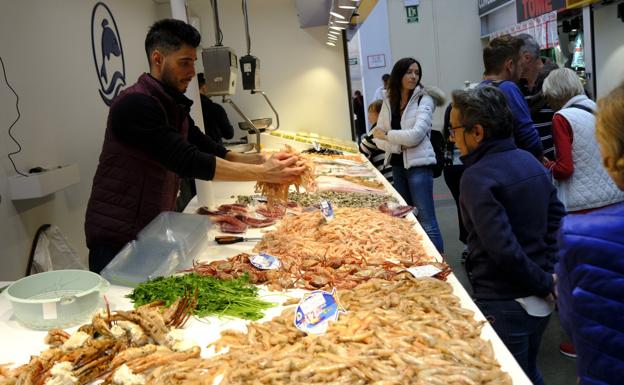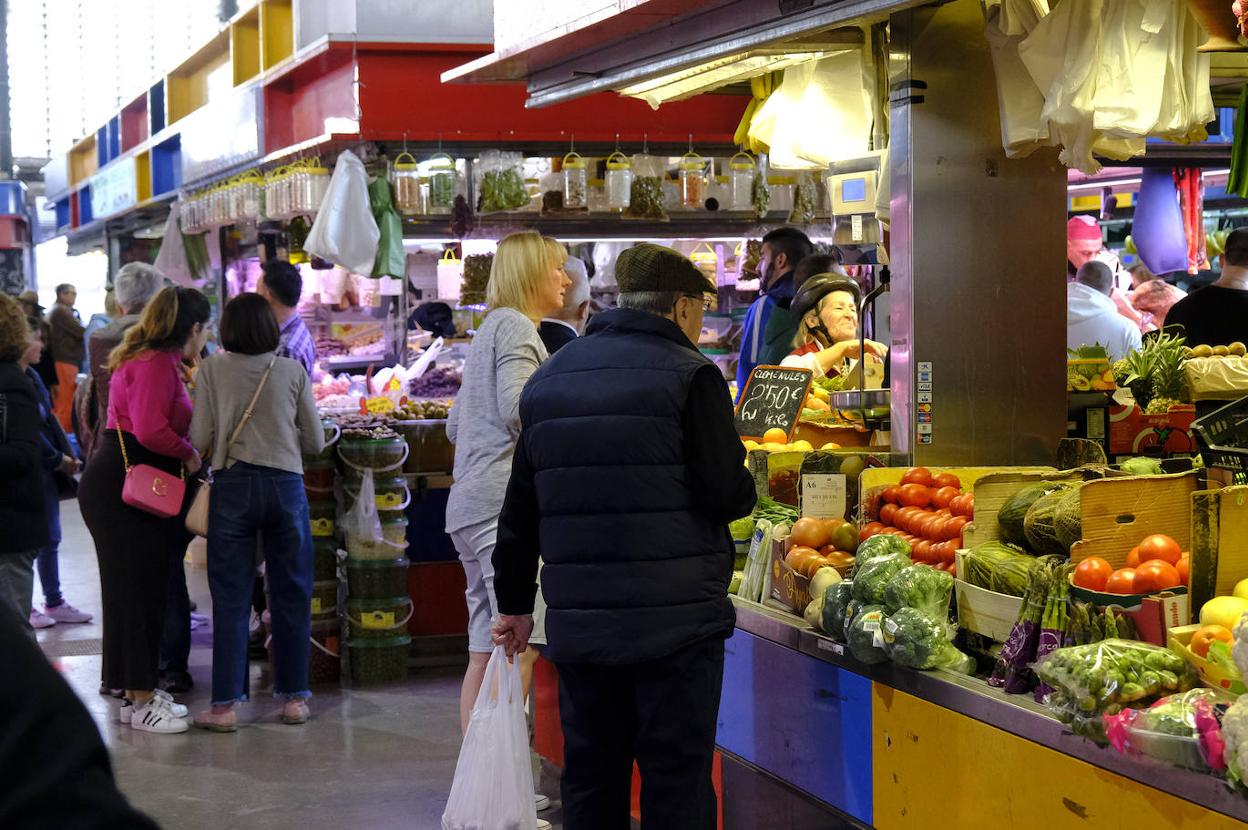Inflation is forcing people in Malaga to eat less healthily
Shoppers in the province have been buying less fresh produce for the last six months because of the rise in prices. These have shot up by as much as 26% at the Mercamálaga wholesale market
Juan Soto
Friday, 9 December 2022, 13:07
The contents of shopping trolleys in Malaga province are increasingly lighter on fresh produce. The big rise in food prices due to inflation is forcing shoppers to go without some healthy food staples. The sale of fruit, vegetables and fresh fish has fallen considerably in the province, and this is especially noticeable at this time of year when people are buying and eating more.
This drop in the quality of what is being eaten in Malaga and the Costa del Sol is confirmed by analysing data on the entry of goods at Mercamálaga - the province's main wholesale market for fresh produce. The sale of fresh products fell by seven per cent in October and saw a decrease in each of the five previous months. Since May, the delivery of fresh goods has fallen by 4.47% overall. In October 24,240 tonnes of fresh produce was sold, compared to 26,070 recorded in October of the previous year.
According to Mercamálaga's data, the fall is widespread across all food categories and has been especially noticeable since September. In October, the sale of fruit and vegetables fell by 7.29%, while fish fell by 7.75%. By subsector, the sale of potatoes saw the highest fall (17.45%), followed closely by fresh fish (7.27%) and fruit (7.17%).
The only exception is for seafood, which saw a 30.81% increase in sales due to the approaching Christmas period and the fact that many consumers have decided to buy seafood in advance for fear of large price increases as the big day approaches.
Since May, 6,012 tonnes less fruit and vegetables have been sold and 876 less fish, in comparison to the same period last year.

The only data that Mercamálaga doesn't record is the delivery of fresh meat because it only has a poultry slaughterhouse. This data is, however, recorded by the agriculture ministry in its monthly report on food consumption in which there is a detailed study on the sale of all different types of produce in Andalucía. There has been a decrease in the consumption of meat, falling from 3.2 to 2.83 kg per capita from September 2021 to September 2022.
When trying to find the reason behind the decrease in sales, inflation seems to be the main culprit. There was a year-on-year increase in the consumer price index of food items and non alcoholic drinks of 14.4% from October 2021 to October 2022, according to data published by the national statistics office. It showed a 0.6% increase on the previous month and the highest rate since records began in January 1994.
The implications of this are, as Mercamálaga has recorded, that there has been a price increase across all fresh food types over the third quarter of 2022.
From July to September, the cost of some items increased by over 25%. Potatoes, which are now being sold for 0.68 euros/kg, have seen the largest increase (26%). In all cases, prices are still higher than those recorded in the last quarter of 2021, when prices tend to be higher due to the increased demand that Christmas brings.
Sellers are worried
In light of this situation, wholesalers and retailers are worried about the fall in sales, while customers are concerned by rising prices, and especially as the situation is not likely to improve before the year ends. "Last November was a really good month, but this November, we have sold nothing," said Pilar López, president of Mercamálaga's fish wholesalers' association.
This business woman thinks that the people of Malaga have stopped buying fresh produce due to economic uncertainty. She fears that consumption levels will not increase again until next Easter. "Sales have decreased since summer. People are scared of what's to come. There is also a shortage of goods, and so what there is very expensive," she added.
Manuel López, president of the association of fruit and vegetable wholesalers, had a similar opinion. "Oil, electricity, mortgages... the cost of everything is increasing, so consumers don't have the money to spend on other things," he said. He realises that some customers cannot afford produce as some items have doubled in price. "When prices go up, sales go down. Not everyone can afford potatoes at the price they are now," he added.
Rafael Jiménez, owner of Ravidepa, one of the main wholesalers in the market, also shines a light on Mercamálaga's situation "Everything has come to a halt. In November, we barely sold anything," he said. He also believes that budgets are tight and that many consumers in Malaga are saving money for Christmas. "First they think about gifts then food comes second."
Situation in the supermarkets
Away from what they are seeing in Mercamálaga, and by extension in the covered food markets of the province, it is the same story in the main supermarkets, which don't always get their produce from the local wholesale market. The head of the confederation of Andalusian businesses in the food and perfumery sectors, Álvaro Zafra, warns that consumption is at a standstill and that in the last few months they are seeing a drop in the average spend, principally in fresh produce.
"Some shoppers are going to bring their spending forward in fear of the prices going up, but not everyone is going to be able to do this," he noted.
The managing director of supermarket chain Maskom, Sergio Cuberos, has the same opinion. He explained that the price of these products has gone up 20% on average because of the cost of raw materials, animal feed and electricity. This is having a big impact on the shopping lists of many people in the province.
"There will be drop off in spending as the prices are already high and I don't think they are going to change very much. This is bad news for the so-called Mediterranean Diet."
